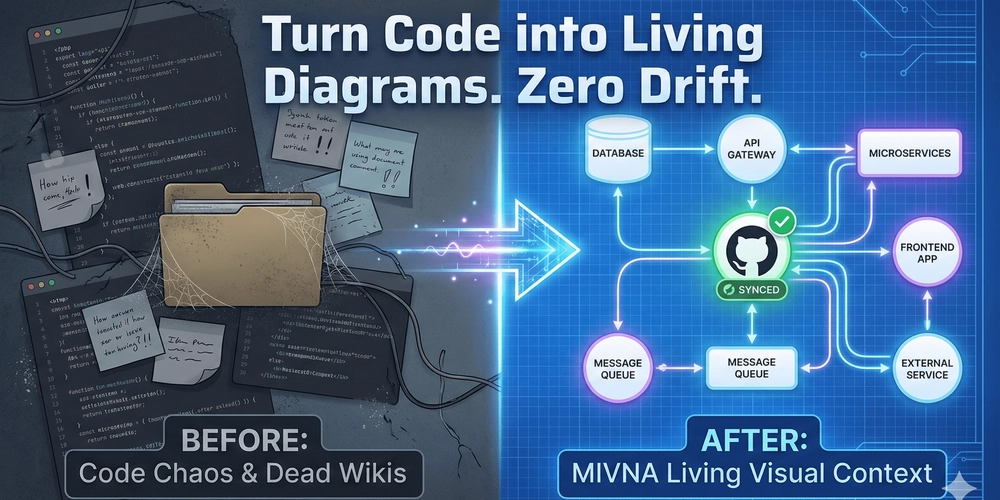TL;DR
Debugging Solidity smart contracts is crucial due to their immutable nature. Hardhat offers a console.log function, similar to JavaScript’s, allowing developers to print variables and messages directly from Solidity code. To use it, import hardhat/console.sol into your contract. While console.log is invaluable during development, it’s recommended to remove such statements in production to optimize performance and maintain security. For persistent logging, consider using Solidity events, which store data on the blockchain and can be accessed externally.
Debugging is super important when you make things using Solidity, a language for Ethereum smart contracts. Imagine building a LEGO structure, but once it’s built, you can’t change it easily. That’s why checking for mistakes (debugging) in Solidity is so crucial – you want to get it right the first time!
Hardhat is like a special toolbox for people making stuff on Ethereum. It has lots of helpful tools, and one of its coolest features is helping you find and fix mistakes in your code. Hardhat’s like a detective, making it easier to spot where things might go wrong in your smart contracts.
But Hardhat isn’t the only toolbox out there. There are other cool tools like Foundry, Truffle, and Brownie. Each of these has its own neat tricks for helping you build and fix things in Ethereum.
In this article, we’re going on an adventure to explore how Hardhat and these other tools help you fix mistakes in your Solidity projects. We’ll take a close look at Hardhat’s special features, especially its detective-like console log, and see how it compares with the other tools. By the end, you’ll know all about these awesome tools and how they can help you make really cool and mistake-free projects on Ethereum!
What is Solidity Console Log?
The Solidity console log is a tool used for debugging code in Solidity, the programming language for Ethereum smart contracts. It allows developers to output information to the console, helping them understand and troubleshoot issues in their program.
In Solidity, console.log() is a function provided by the Hardhat contract library. It is similar to the console.log() function used in other programming languages like JavaScript. By using console.log(), developers can print values or messages to the console during the execution of their smart contracts.
The console.log() function in Solidity is often used for debugging purposes. It allows developers to inspect the values of variables, check the flow of execution, and track the behavior of their smart contracts. By logging information to the console, developers can gain insights into the inner workings of their code and identify any potential issues or errors.
While console.log() can be useful for debugging, it is important to note that it is not recommended for production or live usage. In production environments, using events is considered ideal as they are distributed across nodes and provide a more reliable and scalable way to log information.
Basic Usage of Console Log in Solidity
Using the console log in Solidity is straightforward once you’ve set up your development environment. Here’s a guide to help you get started with the syntax, basic commands, examples, and best practices.
Syntax and Basic Commands
- The syntax for using console log in Solidity is similar to JavaScript. You use
console.log()to output information. - Basic commands include:
-
console.log(: Logs the value of) -
console.log("Message: ",: Logs a string followed by a variable.)
-
- Solidity’s console log can handle various data types including strings, integers, addresses, etc.
Hardhat vs. Remix
-
Logging Features:
- Hardhat: Console.log functionality is part of its local development environment, suitable for larger projects and extensive testing.
- Remix: An online IDE primarily used for quick prototyping and smaller projects. Its logging capabilities are more basic and integrated into its online console.
-
Advantages of Hardhat:
- More robust and suitable for complex, large-scale projects.
- Console.log provides a familiar experience for developers from a JavaScript background.
-
Advantages of Remix:
- Easy to access and use for beginners or for rapid prototyping.
- No setup required, as it’s a browser-based IDE.
-
Limitations of Hardhat:
- Requires setup and familiarity with Node.js environment, which might be a hurdle for beginners.
What is an Alternative for Logging Information in Smart Contracts
Solidity events provide a powerful alternative for logging information in smart contracts. Events allow developers to print information on the blockchain in a structured and searchable manner. They are an integral part of smart contract development, offering several benefits over the console log.
Benefits of Using Solidity Events:
- Searchability and Gas Efficiency: Solidity events are stored in logs on the blockchain, making them searchable and queryable. This allows developers to retrieve specific transaction data efficiently. Emitting events is also more gas-efficient compared to storing data in public storage variables within the contract.
- Testing and Debugging: Events are invaluable for testing and debugging smart contracts. They enable developers to test for specific variables, track the flow of execution, and verify the behavior of the contract. By emitting events at critical points in the code, developers can gain insights into the contract’s execution and identify any issues or unexpected behavior.
- Frontend Interaction: Solidity events facilitate automated frontend updates. By listening for emitted events, frontend applications can automatically update their user interfaces based on the changes happening in the smart contract. This provides a seamless and real-time user experience.
Drawbacks of Using Solidity Events:
- Limited Data Storage: Solidity events have a limited storage capacity. They are primarily used for logging important information and events, rather than storing large amounts of data. If extensive data storage is required, alternative methods like using public storage variables or external databases may be more suitable.
- Inaccessibility to Smart Contracts: Solidity events cannot be directly accessed by smart contracts. They are primarily intended for external use, such as querying and referencing transaction data. If the contract itself needs to access the logged information, alternative approaches like storing data in public variables within the contract may be necessary.
Comparing Solidity Events to the Console Log:
Solidity events and the console log serve different purposes and have distinct advantages. Here’s a comparison:
- Purpose: Solidity events are primarily used for long-term logging and tracking of important contract events. They offer searchability, gas efficiency, and automated frontend interaction. On the other hand, the console log is a temporary debugging tool used during development and testing phases to gain immediate visibility into code execution.
- Data Storage: Solidity events store data in logs on the blockchain, making it accessible and queryable. In contrast, the console log does not persist data on the blockchain and is primarily used for immediate debugging purposes.
- Accessibility: Solidity events can be accessed externally, allowing other applications to query and reference the logged information. The console log, however, is not directly accessible by other contracts or applications.
Ready to leave the confusion behind? Join Metana’s Web3 Solidity Bootcamp with a Job-Guarantee and learn with the clarity of one-on-one guidance!
FAQs
What is the Solidity console log?
- The Solidity console log is a tool used to debug Solidity code by logging information to the console. It helps developers understand and troubleshoot issues in their smart contracts.
How can I use console.log() in Solidity?
- To use console.log() in Solidity, you need to import the “hardhat/console.sol” library in your contract code. This function allows you to print logging messages and contract variables during contract execution.
What are the benefits of using the Solidity console log?
- The Solidity console log provides immediate visibility into the state of your contract during development and testing phases. It helps you log variable values and messages to understand the behavior of your contract.
Can I use console.log() in production code?
- It is recommended to remove or disable console.log() statements in production code to optimize performance and ensure security. Leaving console.log() statements can impact performance and potentially expose sensitive information.
Are there any alternatives to the Solidity console log for logging information in smart contracts?
- Yes, Solidity events are a powerful alternative for logging information in smart contracts. They provide persistent storage, searchability, and automated frontend interaction.
What is Solidity?
- Solidity is a contract-oriented, high-level programming language used for implementing smart contracts on blockchain platforms, primarily Ethereum. It is influenced by C++, Python, and JavaScript and is designed to target the Ethereum Virtual Machine (EVM).
What are the main components of a Solidity contract?
- The main components of a Solidity contract include the contract declaration, state variables, functions, modifiers, events, and struct and enum definitions.
What are Solidity events and how are they related to topics?
- Solidity events are used to emit information from a contract to the blockchain. They can be indexed to allow for faster filtering. Topics are used to identify events and are part of the event’s data structure.
What is the Solidity statement to print data?
- In older versions of Solidity, the logX statement was used to print data. However, it is now deprecated, and events or Solidity libraries enabling the use of console.log() inside contract code are recommended.
What are some common Solidity interview questions?
- Common Solidity interview questions cover topics such as the basics of Solidity, smart contract development, blockchain technology, and Ethereum. These questions help assess a candidate’s knowledge and understanding of Solidity and its ecosystem.
Source link
- More straightforward logging with console.log.
- Enhanced debugging experience, especially for developers familiar with JavaScript.
- Better integration with Ethers.js and Waffle for testing and interacting with contracts.
- Truffle Debugger provides a more traditional debugging experience, which might be preferred by some developers.
- A longer track record and larger user base, providing a wealth of community support and resources.
- Hardhat’s logging might not provide as detailed transaction execution information as Truffle’s debugger in some complex scenarios.
Hardhat vs. Remix
-
Logging Features:
- Hardhat: Console.log functionality is part of its local development environment, suitable for larger projects and extensive testing.
- Remix: An online IDE primarily used for quick prototyping and smaller projects. Its logging capabilities are more basic and integrated into its online console.
-
Advantages of Hardhat:
- More robust and suitable for complex, large-scale projects.
- Console.log provides a familiar experience for developers from a JavaScript background.
-
Advantages of Remix:
- Easy to access and use for beginners or for rapid prototyping.
- No setup required, as it’s a browser-based IDE.
-
Limitations of Hardhat:
- Requires setup and familiarity with Node.js environment, which might be a hurdle for beginners.
What is an Alternative for Logging Information in Smart Contracts
Solidity events provide a powerful alternative for logging information in smart contracts. Events allow developers to print information on the blockchain in a structured and searchable manner. They are an integral part of smart contract development, offering several benefits over the console log.
Benefits of Using Solidity Events:
- Searchability and Gas Efficiency: Solidity events are stored in logs on the blockchain, making them searchable and queryable. This allows developers to retrieve specific transaction data efficiently. Emitting events is also more gas-efficient compared to storing data in public storage variables within the contract.
- Testing and Debugging: Events are invaluable for testing and debugging smart contracts. They enable developers to test for specific variables, track the flow of execution, and verify the behavior of the contract. By emitting events at critical points in the code, developers can gain insights into the contract’s execution and identify any issues or unexpected behavior.
- Frontend Interaction: Solidity events facilitate automated frontend updates. By listening for emitted events, frontend applications can automatically update their user interfaces based on the changes happening in the smart contract. This provides a seamless and real-time user experience.
Drawbacks of Using Solidity Events:
- Limited Data Storage: Solidity events have a limited storage capacity. They are primarily used for logging important information and events, rather than storing large amounts of data. If extensive data storage is required, alternative methods like using public storage variables or external databases may be more suitable.
- Inaccessibility to Smart Contracts: Solidity events cannot be directly accessed by smart contracts. They are primarily intended for external use, such as querying and referencing transaction data. If the contract itself needs to access the logged information, alternative approaches like storing data in public variables within the contract may be necessary.
Comparing Solidity Events to the Console Log:
Solidity events and the console log serve different purposes and have distinct advantages. Here’s a comparison:
- Purpose: Solidity events are primarily used for long-term logging and tracking of important contract events. They offer searchability, gas efficiency, and automated frontend interaction. On the other hand, the console log is a temporary debugging tool used during development and testing phases to gain immediate visibility into code execution.
- Data Storage: Solidity events store data in logs on the blockchain, making it accessible and queryable. In contrast, the console log does not persist data on the blockchain and is primarily used for immediate debugging purposes.
- Accessibility: Solidity events can be accessed externally, allowing other applications to query and reference the logged information. The console log, however, is not directly accessible by other contracts or applications.
Ready to leave the confusion behind? Join Metana’s Web3 Solidity Bootcamp with a Job-Guarantee and learn with the clarity of one-on-one guidance!
FAQs
What is the Solidity console log?
- The Solidity console log is a tool used to debug Solidity code by logging information to the console. It helps developers understand and troubleshoot issues in their smart contracts.
How can I use console.log() in Solidity?
- To use console.log() in Solidity, you need to import the “hardhat/console.sol” library in your contract code. This function allows you to print logging messages and contract variables during contract execution.
What are the benefits of using the Solidity console log?
- The Solidity console log provides immediate visibility into the state of your contract during development and testing phases. It helps you log variable values and messages to understand the behavior of your contract.
Can I use console.log() in production code?
- It is recommended to remove or disable console.log() statements in production code to optimize performance and ensure security. Leaving console.log() statements can impact performance and potentially expose sensitive information.
Are there any alternatives to the Solidity console log for logging information in smart contracts?
- Yes, Solidity events are a powerful alternative for logging information in smart contracts. They provide persistent storage, searchability, and automated frontend interaction.
What is Solidity?
- Solidity is a contract-oriented, high-level programming language used for implementing smart contracts on blockchain platforms, primarily Ethereum. It is influenced by C++, Python, and JavaScript and is designed to target the Ethereum Virtual Machine (EVM).
What are the main components of a Solidity contract?
- The main components of a Solidity contract include the contract declaration, state variables, functions, modifiers, events, and struct and enum definitions.
What are Solidity events and how are they related to topics?
- Solidity events are used to emit information from a contract to the blockchain. They can be indexed to allow for faster filtering. Topics are used to identify events and are part of the event’s data structure.
What is the Solidity statement to print data?
- In older versions of Solidity, the logX statement was used to print data. However, it is now deprecated, and events or Solidity libraries enabling the use of console.log() inside contract code are recommended.
What are some common Solidity interview questions?
- Common Solidity interview questions cover topics such as the basics of Solidity, smart contract development, blockchain technology, and Ethereum. These questions help assess a candidate’s knowledge and understanding of Solidity and its ecosystem.




